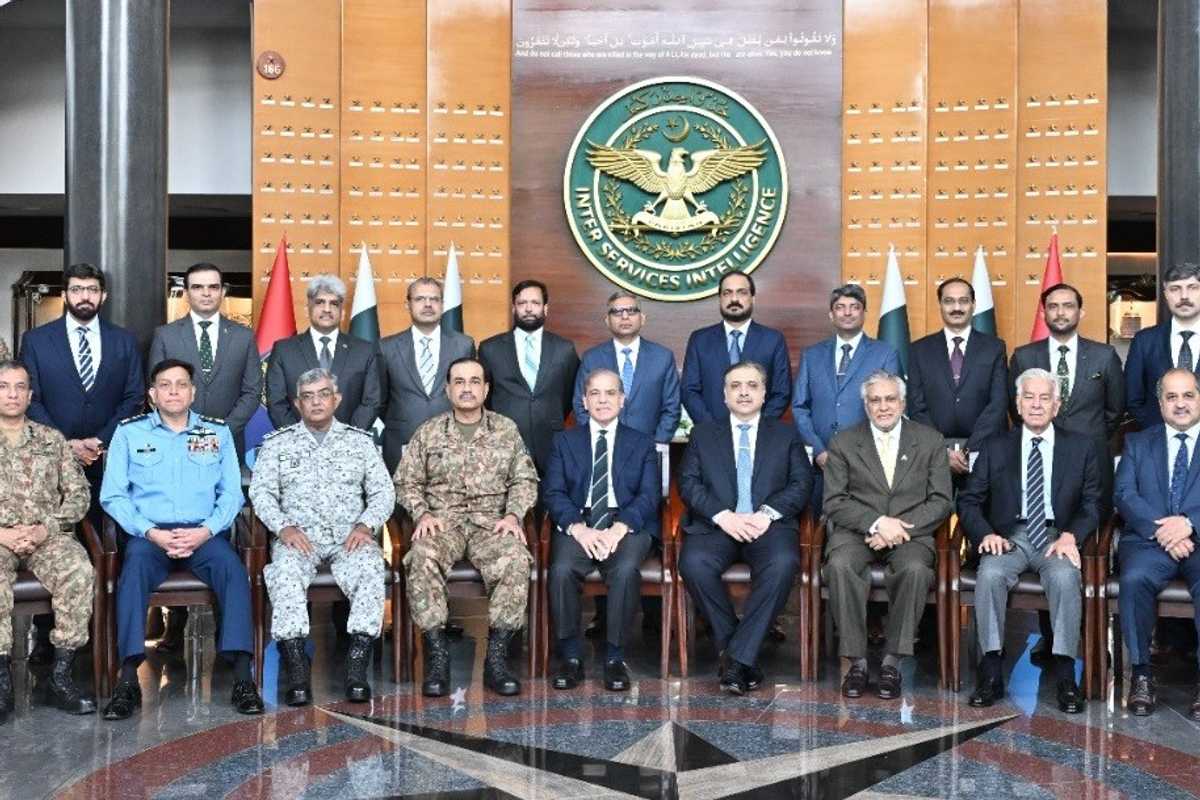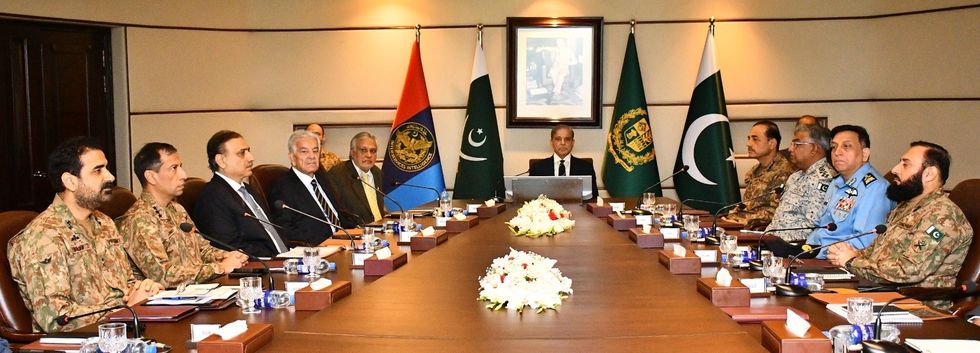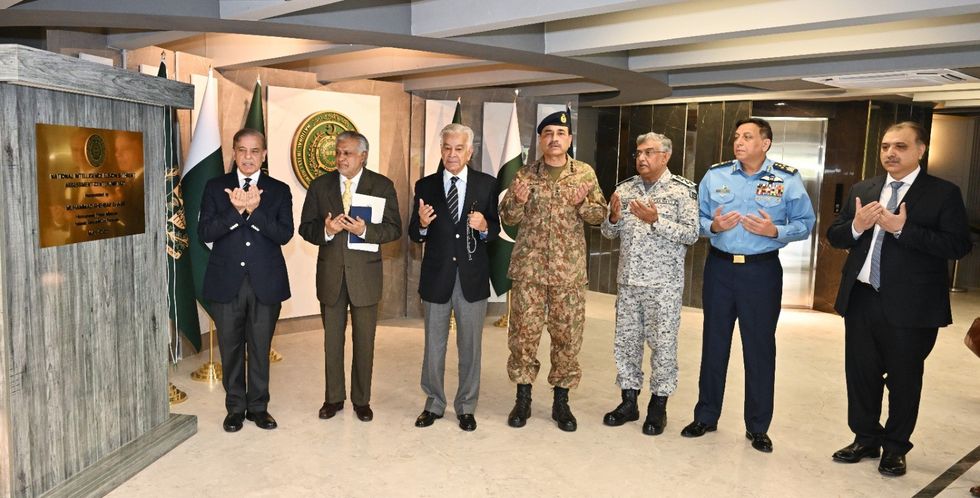Pakistan PM visits spy agency HQ amid India tensions, vows readiness for ‘conventional threat’
Shehbaz Sharif lauds Pakistan’s top spy agency, stresses national vigilance as border clashes flare after Kashmir attack
News Desk
The News Desk provides timely and factual coverage of national and international events, with an emphasis on accuracy and clarity.

PM Shehbaz Sharif visitis the ISI headquarters on Tuesday, May 6, 2025.
PMO
Prime Minister Shehbaz Sharif visited the headquarters of Pakistan’s top spy agency on Tuesday, where he was briefed on the country's preparedness for a possible “conventional threat” amid rising tensions with neighboring India.
“The visit entailed a detailed briefing on the prevailing security environment, with a particular focus on preparedness for [a] conventional threat in the light of India’s increasingly aggressive and provocative posture along Pakistan’s eastern border,” a statement from the Prime Minister’s Office said.
The visit comes days after an April 22 attack in Indian-administered Kashmir’s Pahalgam region, which left several dead and wounded. India has blamed Pakistan-based militants for the assault — a claim Islamabad strongly denies.
In response, both countries have taken retaliatory measures, including closing land borders, halting flights, expelling diplomats, and increasing military activity along the Line of Control (LoC) — the de facto border in the disputed Himalayan region.
During the briefing, ISI officials updated the country’s leadership on regional security trends and what the statement described as an “evolving threat matrix,” including conventional military challenges, hybrid warfare, and use of proxy groups.
Prime Minister Shehbaz was joined by Deputy Prime Minister Ishaq Dar, Defense Minister Khawaja Asif, and the chiefs of the army, navy, and air force — General Asim Munir, Admiral Naveed Ashraf, and Air Chief Marshal Zaheer Ahmad Babar, respectively.
The group photo released by the PMO also showed ISI chief Lt Gen Muhammad Asim Malik — recently appointed as national security adviser — and military spokesperson Lt Gen Ahmed Sharif Chaudhry.

The officials “underscored the imperative of heightened national vigilance, seamless inter-agency coordination, and reinforced operational readiness to deter and decisively respond to any violation of Pakistan’s sovereignty and territorial integrity,” the statement said.
The prime minister praised the ISI’s “professionalism and strategic acumen” and said the agency plays a key role in shaping security decisions under “complex and dynamic conditions”.
“Pakistan Army is one of the most professional and disciplined forces in the world,” Shehbaz said, adding that “the entire nation is standing with our brave armed forces”.
The leadership reaffirmed “Pakistan’s unambiguous resolve to defend the homeland against all threats — conventional or otherwise” and said the armed forces, supported by state institutions and the public, remain “fully prepared to uphold Pakistan’s security, prestige, and honor under all circumstances”.
The decades-old Kashmir dispute remains at the heart of Indo-Pakistani tensions. The region is claimed in full by both countries but administered in parts. Since partition in 1947, the nuclear-armed rivals have fought three wars — two over Kashmir.
India accuses Pakistan of backing insurgents, while Pakistan accuses India of rights abuses and denying Kashmiris the right to self-determination.
NIFTAC inaugurated
Prime Minister Shehbaz also inaugurated the National Intelligence Fusion and Threat Assessment Centre (NIFTAC) in Islamabad.
He was accompanied by Deputy Prime Minister Ishaq Dar, Defense Minister Khawaja Asif, and the services chiefs, according to the PM Office.

NIFTAC will act as the central hub for Pakistan’s counterterrorism efforts, integrating over 50 federal and provincial agencies through a unified intelligence system. It is connected to six provincial centers, including in Pakistan-administered Kashmir and Gilgit-Baltistan.
The center aims to improve intelligence sharing, threat analysis, and coordination across government bodies to deliver faster and more effective responses to security threats.
Calling NIFTAC a “quintessential national platform,” Shehbaz said it would be key to dismantling terrorism and its support networks.







Comments
See what people are discussing